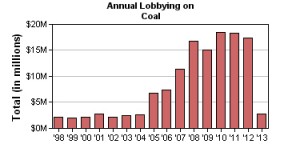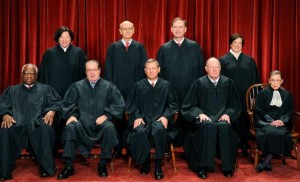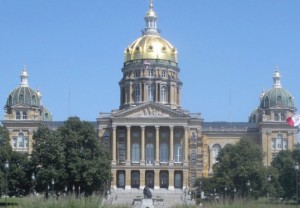
As everyone is well aware by now, Egypt’s President Mohamed Morsi was overthrown last week in what some are calling a military coup and there are legitimate concerns about the possibility of a civil war erupting. Whether it does or not, it’s obvious at this point that Egypt will remain in some state of turmoil for the foreseeable future. It’s heartbreaking for all of the Egyptians that have simply been looking for a better government and way of life. It all seemed within reach just two years ago.
The years since have been a roller coaster ride, starting with the Egyptian people banding together and orchestrating a successful and relatively peaceful overthrow of Hosni Mubarak’s government. Shortly thereafter they elected a president, drafted a constitution and then, rather quickly devolved back into chaos. While the future for this ancient nation is uncertain, one thing is a pretty safe bet:
The Egyptian People do not trust the US Government and won’t likely be looking to it for guidance in reestablishing and stabilizing their shaky government.
In the now constant flux of the Middle Eastern political landscape, the United States’ long history of financial and political support for tyrannical (many now toppled) regimes has not allowed it much real influence in the way the region is now being restructured. Egypt, for example, has a number of legitimate grievances against the US Government and is a prime example of the United States’ new found diplomatic impotency in the region.
Why am I discussing the United States’ role in the region? Well, at the risk of sounding solipsistic (after all, this is an Egyptian story, not an American one), I think it’s impossible to ignore the peripheral role the United States played in the oppression of the Egyptian People by the Mubarak government that eventually sparked the revolution and led to the current turmoil. Let’s take a look:
The Mubarak Regime– which ruled for its entire duration under an emergency law which gave the executive (the Interior Ministry) extensive powers including the ability to detain citizens indefinitely without charge or trial (sound familiar?)– was notorious for torture and other flagrant violations of human rights. In one example listed in a report by Human Rights Watch released in the early days of the Egyptian Uprising, a young CairoUniversity law student protesting the US invasion of Iraq in 2003 was detained and brutally tortured:
“He stayed a long time upstairs, up to four hours at a time. He was tortured by electricity as well as beatings—he told us. He didn’t even have to tell us though, you could tell by his condition. We saw the burn marks from the electrocution. He was nearly comatose when they carried him [into the cell]. His face was extremely swollen and bruised. He was shaking. There were burn marks on his hand and elbows, and the feet and toes.”
There is little argument now that it was this type of torture and police abuse which can generally be credited with sparking the revolt in January 2011. As the protest, international exposure and political pressure grew and Mubarak’s fate became increasingly apparent, the Obama Administration rolled out its official position via Secretary of State Clinton who came out publicly for “an orderly, peaceful transition to real democracy”.
What was not included in this Sunday Morning News Show discussion—at least not by Hillary Clinton—was any mention of the long, dark history of cooperation with the Mubarak government. Indeed, up until that point, Egypt was not only touted as a major ally but was also a major recipient of US Foreign Aid—only second to Israel in total dollars received, though it’s discussed much less than Israeli aid.
There are a number of reasons that Egypt was privy to over $50 Billion dollars in aid since 1975. It’s strategically important to have access to Egypt’s Suez Canal. It was one of the only Middle Eastern states relatively friendly with Israel, following its controversial entry into the Egypt-Israel Peace Treaty of 1979. Later on, shortly after the 9/11 attacks, Mubarak would prove his loyalty to the US during the “War on Terror” by participating in the infamous extraordinary rendition program which allowed the CIA to send detainees to other countries like Egypt for torture—they were, after all, well practiced with torturing detainees as I previously mentioned—and interrogation. Just a little trade-off: they torture our detainees to extract information and we don’t say anything about them torturing theirs. All in all, it could and most likely would be argued by any State Department official that Egypt got our political and financial support because, in a tumultuous and unfriendly region, it was the devil we knew.
But there’s another reason, rarely acknowledged in political circles, that Mubarak’s government got the amount of aid money and political support that it did. They asked for it the Washington way. They lobbied for it. Right up until the very end.
Even as the truths about torture and oppression became increasingly articulated, even as the Egyptian people began rallying to overthrow the government that had committed such atrocities for three decades, even as the civilized world began to turn its back on the dictator, an influential number of former congressmen turned powerful lobbyists worked the back channels of Capitol Hill to protect Mubarak’s government from potential embarrassment—for just a minor fee, of course.

Over the course of the last six months of 2010, the PLM Group—a joint venture between the lobbying groups of former congressman Toby Moffett, former congressman Bob Livingston and K-Street superstar Tony Podesta—pulled in roughly $400,000 from the Egyptian government to stop a Senate Resolution that called on Mubarak to support “free, fair, transparent and credible” elections as well as bring an end to the Emergency Law that allowed authorities to “harass, intimidate, arbitrarily detain, and engage in violence against peaceful demonstrators, journalists, human rights activists and bloggers.” In the end, their efforts were undeniably successful and the resolution was killed thanks in large part to the bi-partisan efforts of Senators Diane Feinstein of California and (Bob Livingston’s close friend) Roger Wicker of Mississippi.
A little over a month after the resolution died, the people of Egypt made Mubarak’s lobbying effort irrelevant and exposed the US Government on the wrong side of its supposed anchor value of freedom for all. The Egyptian People won’t soon forget.
 In spite of (or perhaps because of) all the recent chaos over embarrassing revelations of the surveillance habits of the US government, the Obama Administration pushed forward with its climate agenda last week and announced plans to further curb future carbon emissions. The plan, unveiled by the President during a speech at Georgetown University, called for the Environmental Protection Agency
In spite of (or perhaps because of) all the recent chaos over embarrassing revelations of the surveillance habits of the US government, the Obama Administration pushed forward with its climate agenda last week and announced plans to further curb future carbon emissions. The plan, unveiled by the President during a speech at Georgetown University, called for the Environmental Protection Agency 




